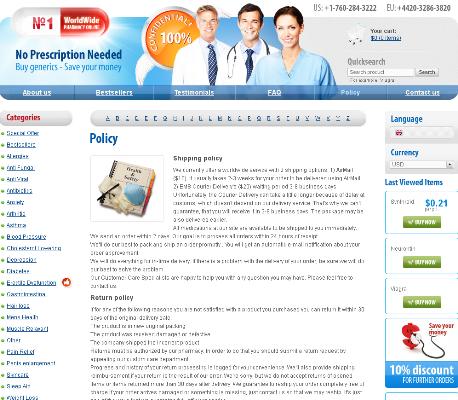**antabuse Success Stories: Real-life Experiences**
Journey from Addiction to Sobriety: a Fresh Start
For many, the path to sobriety started with a hard copy of their script being handed over by a white coat. This marked the first step in breaking free from addiction—a combination of determination and a prescription regimen. Faced with the urge to relapse, one individual, John, recounted how he relied on a meticulously followed sig from his therapist to make it through the difficult days. Another user, Maria, described attending her first support group meeting, a key component of her journey.
| Individual | Key Element |
|---|---|
| John | Therapist's Sig |
| Maria | Support Group |
By following professional guidance and taking things stat, they were able to gain a fresh start, transforming their lives in lasting ways.
Overcoming Challenges: Personal Struggles and Triumphs

For many, the path to sobriety with antabuse begins with daunting personal challenges. Battling withdrawal symptoms and persistent cravings, individuals often face the psychological war of resisting the urge to drink. Those who triumph recount how strict adherence to their script played a vital role. It wasn’t just about taking a pill; it was about embracing a complete lifestyle overhaul. Real-life stories reveal people transforming struggles into triumphs, often describing feelings of accomplishment when they return hard copy prescriptions unused.
The journey is rarely solitary. Emotional highs and lows are met with unwavering family support and professional guidance. Therapists and doctors, with their sig prescriptions, become pillars of strength. Confronted by a toxic relationship with alcohol, users learn that overcoming addiction involves more than just medication; it requires a comprehensive and compassionate support system.
Family Support: Stories of Unity and Healing
Restoring harmony within families often plays a crucial role in the journey to sobriety. When individuals battle addiction, the entire family system can be strained, making unity and healing essential components in recovery. Real-life experiences reveal how Antabuse has facilitated a new beginning for many families. Stories of those who found strength in the unity of family support showcase its transformative power.
Therapists often emphasize the importance of collective healing, reinforcing the idea that sobriety is not an isolative endeavor but a shared goal. The support and encouragement from loved ones can be as critical as the medication itself. In numerous accounts, family members recount how they followed the Sig to understand Antabuse treatment and supported their loved ones through every challenge, reinforcing their commitment to an alcohol-free life.
Witnessing a loved one's recovery process can strengthen family bonds significantly. The commitment to follow the prescribed Rx properly heavily depends on the solidarity of those around the patient. Therefore, it’s not merely about avoiding alcohol but celebrating each small victory together. Through empathy, patience, and a shared sense of purpose, families have successfully turned their struggles into stories of unity and enduring strength.
Professional Help: Insights from Therapists and Doctors

Therapists and doctors play a crucial role in the Antabuse journey, offering a tailored script that fits individual needs. The road to sobriety is often paved with challenges, and professional support can help navigate these obstacles stat. Therapists provide vital emotional support and strategies to maintain motivation and focus, while medical professionals ensure the compound medication is used safely and effectively.
Count and pour sessions in therapy focus on developing coping mechanisms and relapse prevention techniques. These sessions also provide an opportunity for a thorough med rec, ensuring all treatments are effectively aligned. Trusted doctors, akin to pharmacists in the drive-thru, ensure quick and seamless support, making the journey manageable and sustainable.
Regular follow-ups and therapeutic substitutions are essential to adapt the treatment plan as one progresses in their sobriety. The combination of professional insights and personal commitment enables individuals to achieve long-term success. With the right support and medical guidance, maintaining an alcohol-free life becomes a realistic and achievable goal.
Tips for Success: Practical Advice from Real Users
Real users of Antabuse have shared a range of practical tips that can aid in achieving successful, long-term sobriety. One common piece of advice is to always follow the 'Sig' on your script to the letter, ensuring you're taking the medication exactly as prescribed. This helps maintain its efficacy and keeps you accountable.
Another crucial tip is to surround yourself with a robust support system. Whether it’s family, friends, or medical professionals, having a group that understands your journey can make a significant difference. One user mentioned utilizing 'Clean Rooms' in their home—a designated, alcohol-free space to help avoid temptations. Additionally, keeping a ‘hard copy’ of motivational quotes or reminders in visible spots can also serve as daily inspiration.
| Tip | Details |
|---|---|
| Follow Sig Carefully | Ensures medication efficacy and accountability |
| Build Support System | Maintains emotional and psychological support |
| Create Clean Rooms | Maintains focus by avoiding temptations |
| Hard Copy Motivation | Provides daily inspiration and reinforcement |
Long-term Sobriety: Maintaining a Healthy, Alcohol-free Life
Maintaining long-term sobriety often requires a blend of personal commitment and practical strategies. Many individuals benefit from regular participation in support groups and consistently following scripts from their healthcare providers. This approach provides a structured environment that alleviates the feeling of going it alone.
The role of routine cannot be underestimated, as it helps establish a new normal that supports an alcohol-free lifestyle. It's crucial to incorporate activities that replace old habits, such as exercise, hobbies, and volunteering, all of which can bring a sense of fulfillment and purpose. Healthcare professionals often recommend this diversified approach to mitigate the 'vial' void that alcohol once filled.
Regular check-ins with therapists or doctors are key to enduring sobriety. They help individuals stay accountable and adjust their strategies as needed. This ongoing support can include reassessment of any side effects from medications or engaging in practices like meds check, which optimize treatment plans and general well-being.

